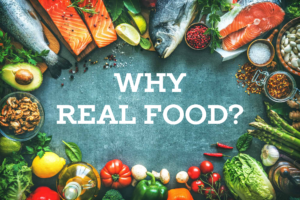Scurvy was a scourge for sailors during the mid-15th to mid-18th centuries when ships were dominant in global trade and warfare. No one knew that the lack of vitamin C for long periods of time would cause disease, decay and ultimately death.
Fortunately, in 1753, James Lind, a Scottish surgeon in the Royal Navy, discovered that sailors’ scurvy could be prevented by eating citrus fruits. But it still took another 42 years for health reformers to persuade the Royal Navy to routinely give lemon juice to its sailors.
Today, scurvy may no longer be a scourge, but low-level vitamin C deficiency is common. Because of the prevalence of chronic disease, knowledge of the body’s need for vitamin C is more important than ever.
As the Scottish surgeon discovered, vitamin C is not made by the human body, but it is crucial to maintain optimal health, to prevent disease, and to play a big part in curing disease.
Vitamin C:
Boosts the Immune System
Vitamin C contributes to your immune defense system by supporting multiple cellular functions of your body’s adaptive immune systems.
Supports the Brain
- protects against neural damage
- promotes the healthy development of neurons and supports the formation of myelin (a soft, white material in the membrane of certain cells)
- supports optimal neurotransmitter production
- leads to expression of BDNF – brain-derived-neurotropic-factor (a protein)
- may even help avoid Alzheimer’s Disease according to recent studies

Fights Oxidative Damage in the Body
Consuming vitamin C can increase your blood antioxidant levels by up to 30%.
Antioxidants protect cells from free radicals, which fights inflammation. Research has shown that chronic inflammation is associated with heart disease, diabetes, cancer, arthritis, and bowel diseases like Crohn’s disease and ulcerative colitis.
Studies show that vitamin C is especially effective at reducing damage in the lungs. That’s why some doctors were using it in early treatment of Covid-2.
It is sometimes used in the form of a high dose IV to aid in recovery from surgery and illnesses like cancer.
Boosts Collagen Production and Improves Skin
Vitamin C helps improve the connective tissues in the entire body, including skin and bones. Studies show it may slow the aging process by protecting and improving the body’s collagen. Topical treatments are clinically shown to reduce the appearance of wrinkles, lines, and sunspots.
Supports the Adrenals
Chronic stress puts a strain on the adrenal glands, reducing levels of cortisol. Vitamin C replaces lost cortisol.
Aids in Healing Wounds
The major function of vitamin C in wound healing is assisting in the formation of collagen, the most important protein of connective tissue.

Types of Vitamin C:
Food Sources
Vitamin C is found in many foods, and when possible, this is the best way to consume it. Eating raw vegetables and fruits will retain all its nutrients, but if you can’t digest raw vegetables, lightly steaming, sauteing, or fermenting them will preserve vitamin C’s properties. In fact, fermentation releases vitamin C, beneficial bacteria, and many other nutrients.
Citrus fruits are high in vitamin C. One medium orange provides 70 mg of Vitamin C, while one grapefruit provides about 56 mg. Citrus fruit juices contain even higher amounts of vitamin C, with a 225 mg glass of fresh-squeezed organic orange juice providing around 125 mg of vitamin C. Be aware, though, of the high sugar content of juices, which is buffeted by eating the whole fruit. Starting your day with lemon juice squeezed into a glass of purified water is also ideal.
Other fruits high in vitamin C are kiwifruit, strawberries, papayas, guavas, and acerola cherries.
Vegetables high in vitamin C are bell peppers, broccoli, cauliflower, tomatoes, kale, and snow peas.
Food-based Supplements

Even with the best of diets, getting enough vitamin C from food can sometimes be difficult if not impossible. According to the Mayo Clinic, since vitamin C is water-soluble, doses up to 2,000 mg a day are considered safe, diarrhea being the most common side effect. Since we are all different, the amount each of us needs will vary. Always use bowel tolerance an indicator.
Dr. Linus Pauling, two-time Nobel Prize winner, published Vitamin C and the Common Cold (1970) in which he recommends taking mega-doses of vitamin C to help fight the common cold and other diseases.
It is rumored Pauling took between 12,000 and 18,000 mg of vitamin C daily and he lived to 93.
How much vitamin C do You Need?
The answer depends on who you ask. Modern research is divided, and every health expert seems to have a different opinion.
If you are eating enough food with vitamin C, that may be sufficient for you. With any health issue, you may want to supplement with whole-food sources.
The Linus Pauling Institute recommends 400 mg of vitamin C daily.







